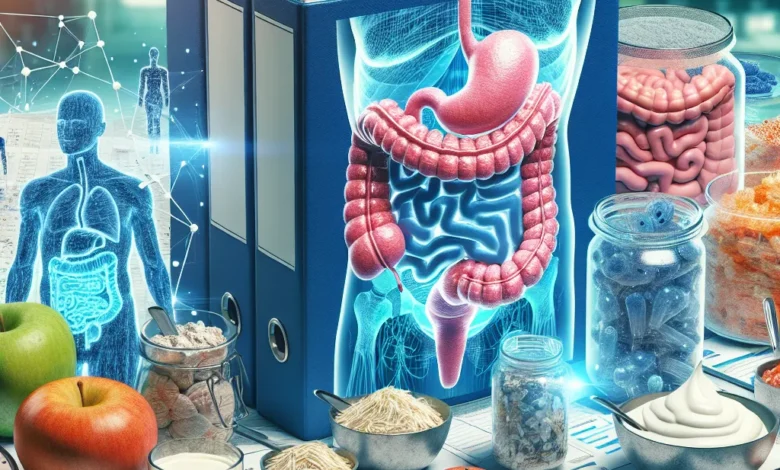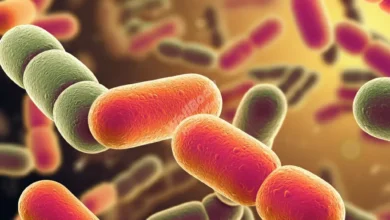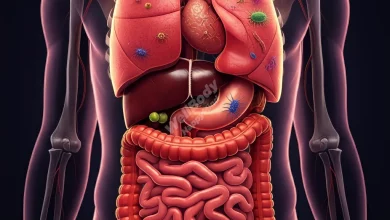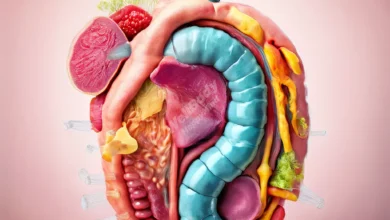The Digestive Dossier: Delving Deep into Gut Health

Our digestive system is a complex network responsible for processing the food we eat, extracting nutrients, and eliminating waste. Understanding the intricacies of gut health is crucial for overall well-being. In this comprehensive guide, we will delve deep into the world of digestion, exploring how the gut functions, the importance of a healthy microbiome, and practical tips for maintaining optimal gut health.
Section 1: The Basics of Digestion
Digestion begins in the mouth, where enzymes in saliva start breaking down food. As food travels through the esophagus to the stomach, gastric juices further break it down. In the small intestine, nutrients are absorbed, while the large intestine is responsible for absorbing water and forming waste products.
Section 2: The Gut Microbiome
The gut microbiome refers to the trillions of bacteria, fungi, and other microorganisms that reside in our digestive tract. These microbes play a vital role in digestion, nutrient absorption, and immune function. Maintaining a diverse and balanced microbiome is key to overall health.
Section 3: Common Gut Health Issues
Digestive disorders such as irritable bowel syndrome (IBS), acid reflux, and inflammatory bowel disease (IBD) can significantly impact quality of life. Symptoms may include bloating, gas, diarrhea, or constipation. Seeking medical advice is important for proper diagnosis and management.
Section 4: Foods That Support Gut Health
A diet rich in fiber, fermented foods, and prebiotics can promote a healthy gut. Incorporating foods like yogurt, kefir, sauerkraut, and whole grains can help nourish beneficial gut bacteria. Probiotic supplements may also be beneficial for some individuals.
Section 5: The Gut-Brain Connection
The gut and brain communicate through the gut-brain axis, a bidirectional pathway that influences mood, behavior, and overall health. Imbalances in the gut microbiome can impact mental health conditions such as anxiety and depression.
Section 6: Importance of Hydration
Staying hydrated is essential for proper digestion and gut health. Water helps soften stool, prevent constipation, and support the mucosal lining of the intestines. Aim to drink at least eight glasses of water per day.
Section 7: Table: Gut-Friendly Foods
| Food | Benefits |
|---|---|
| Yogurt | Rich in probiotics for gut health |
| Berries | High in antioxidants and fiber |
| Leafy greens | Excellent source of vitamins and minerals |
| Oats | Promotes healthy digestion and regularity |
Section 8: Tips for Improving Digestion
- Chew your food thoroughly to aid in the digestive process.
- Avoid overeating and opt for smaller, more frequent meals throughout the day.
Section 9: Lifestyle Factors
Regular exercise, stress management, and adequate sleep are all important factors in maintaining a healthy gut. Physical activity can help promote regular bowel movements, while stress reduction techniques like meditation can support gut health.
Section 10: Seeking Professional Advice
If you are experiencing persistent digestive issues or concerns about your gut health, it is essential to consult a healthcare provider. They can help diagnose underlying conditions and develop a personalized treatment plan.
FAQ: Comprehensive FAQ section addressing common queries about “The Digestive Dossier: Delving Deep into Gut Health”
What role does the gut microbiome play in overall health?
- The gut microbiome influences digestion, nutrient absorption, immune function, and even mental health.
Are probiotic supplements necessary for everyone?
- While probiotics can be beneficial, it’s best to consult a healthcare provider to determine if they are right for you.
How can I improve my gut health through diet?
- Incorporating fiber-rich foods, fermented foods, and plenty of water can help support a healthy gut.
Key Takeaways
In this comprehensive guide to gut health, we have explored the basics of digestion, the importance of the gut microbiome, common gut health issues, and practical tips for maintaining optimal gut health. Remember to focus on a balanced diet, stay hydrated, manage stress, and seek professional advice if needed to support your digestive health effectively. By prioritizing your gut health, you can enhance your overall well-being and quality of life.



